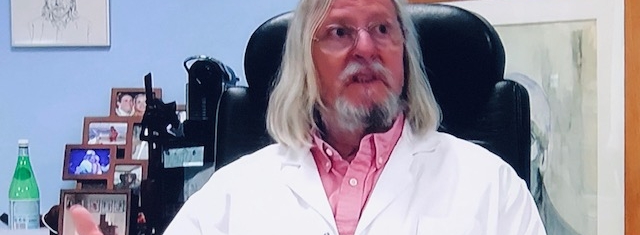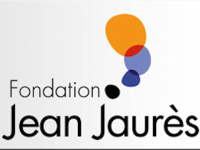Health
THE FOUNDATION JEAN JAURES PUBLISHES A SURVEY SUPPORTING PROF DIDIER RAOULT
STILL SEEN AS A HEROE DESPITE CONSPIRACY

Professor Didier Raoult (Source: TV caption BFM Tv)
USPA NEWS -
The Jean-Jaurès Foundation publishes the entire Antoine Bristielle survey on the support of Didier Raoult, professor of microbiology and president of the Marseille University Hospital Institute (IHU-Méditerranée). Professor Didier Raoult now deeply divides public opinion, seen as a fanciful and dangerous character for some, a heroic doctor for others, while the scientific controversy concerning the use of hydroxychloroquine - the treatment against Covid-19 recommended by the director of the IHU Mediterranean Infection - is still in full swing, the support of a part of the population towards Professor Raoult does not decrease.
A BREEDING GROUND FOR POLITICAL AND MEDIA DISTRUST----------------------------------------------------------------
If the strong distrust of the French towards Emmanuel Macron was widely pointed out during the health crisis, it reached among the supporters of Professor Raoult the abysmal level of 4%. Confidence in Édouard Philippe is only 11% among those questioned. This strong distrust manifests itself not only towards political leaders but also towards political institutions. Political parties, like the presidential institution, inspire little confidence in our respondents: 8% for the first and 13% for the second, against 13% and 34% in the general French population. All the institutions supposed to represent the citizens for political or social purposes are extremely disparaged within the pro-Raoult spheres.
A LARGELY POPULIST SUPPORT GROUP-----------------------------------------------------------------------------------------------
Support for Professor Raoult is far from being opposed to an “anti-system“ candidacy in 2022 (Next french Presidential elections), of a personality not coming from the political arena, such as Jean-Marie Bigard or Michel Onfray for example. 40% even think that it would be a good thing for democracy. Even if the profile of the humorist, the philosopher and the professor of medicine are obviously incomparable it is nevertheless interesting to note the connections which can be carried out between these different individuals. Didier Raoult intervened on several occasions in the web TV of Michel Onfray, who in return does not hesitate to proclaim his admiration for the Marseille professor. As for Jean-Marie Bigard, he in no way hides his unfailing support for Professor Raoult. If a non-negligible part of the support for Didier Raoult is far from being opposed to an application outside the system, they nevertheless do not go so far as to envisage an application for Didier Raoult in 2022. A large majority of his most virulent supporters do not wish to that the professor launches out in politics, even if they are nevertheless more than 60% to consider voting for him if he were to appear.
I From distrust to conspiracy
If French citizens stand out in Europe for their strong distrust, the supporters of Didier Raoult take an additional step by considering that the word of public authorities, wherever it comes from, is so discredited that it cannot be given any credit, even in a situation as tragic as that of a health crisis. When the media and political speech is so disparaged, adherence to the most conspiratorial theses is facilitated.
Using an item of five questions also present in the Jean Jaurès Foundation and Conspiracy Watch survey, the results are spectacular. Thus, 89% of the individuals questioned agree that the Ministry of Health is in cahoots with the pharmaceutical industry to hide the reality about the reality of vaccines, against 43% of the French. But adherence to conspiracy theories is not limited to the medical questions that the period of health crisis undoubtedly made more significant. 43% of supporters subscribe to the theory of major replacement, that is to say almost twenty points more than what we observe within the population as a whole. 53% believe in the Illuminati against "only" 27% of the French.
In a more synthetic way, while in the French population, 21% of French people believed in more than half of the conspiracy theses presented to them, this figure rises to 49% in the case of support for Professor Raoult on social networks.
Strong distrust of political and media institutions and of representative democracy, adherence to conspiracy theories, influence of social networks: this study finally shows us in hollow the issues affecting a large part of French society. Of course, the methodology of this survey tends to over-represent the most virulent profiles, but they are also "opinion leaders" who will contribute via their digital activism to disseminate the theses of Didier Raoult. On the other hand, it is striking to note that at the beginning of July, 42% of people interviewed in an Ifop survey, trust the infectious disease specialist to "reinvent the country" placing him in this regard on the podium of the favorite personalities of the French. It is also interesting to see how the various studies sometimes tending to prove him right, and often to prove him wrong, have never changed his popularity within his support groups. Source: Foundation Jaures
Foundation Jaures Professor Didier Raoult. Hydoxychloroquine Covid-19 Epidemiologist. Marseille France Jedi Foster Rahma Sophia Rahdi
Liability for this article lies with the author, who also holds the copyright. Editorial content from USPA may be quoted on other websites as long as the quote comprises no more than 5% of the entire text, is marked as such and the source is named (via hyperlink).








